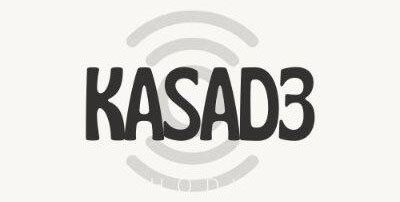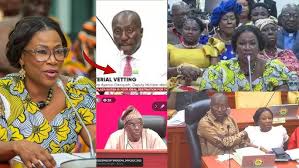The recent parliamentary vetting session involving Hon. Afenyo Markin, the Minority Leader, and Dr. Ayensu-Danquah, a deputy ministerial nominee for the Ministry of Health, sparked significant debate.
While some criticized the line of questioning as unnecessary, others praised Dr. Ayensu-Danquah’s responses, labeling her as brilliant and well-prepared. However, beneath the surface of this exchange lies a critical discussion about academic titles, their significance, and how they are earned—a topic that may be lost on those unfamiliar with the rigors of academia.
At the heart of the questioning was whether Dr. Ayensu-Danquah held the formal title of “Professor.” In academic circles, professorship is not merely an honorary label but a rank earned through extensive research, peer-reviewed publications, and institutional conferment. Unlike bachelor’s, master’s, or PhD degrees—which follow structured timelines—professorship is awarded based on scholarly contributions. The Ghana Tertiary Education Commission (GTEC) has clarified that while the term “professor” is sometimes used informally in the U.S., its official use requires formal recognition by a university.
Hon. Afenyo Markin’s persistence in seeking clarity was not an attack on Dr. Ayensu-Danquah’s intelligence or credentials but an attempt to ascertain whether she had been formally elevated to the highest academic rank. Her response—that she is a “professor of surgery at the University of Utah”—was met with applause, yet the Minority Leader sought further confirmation. This was not about undermining her expertise but ensuring accuracy in titles, especially given the jurisdictional differences between Ghana and the U.S.
Dr. Ayensu-Danquah’s defense was robust: she emphasized her 15 years of teaching, surgical practice, and numerous publications. However, the distinction lies in whether her institution had formally conferred the title. In academia, teaching and practice alone do not automatically grant professorship—peer-reviewed research and institutional approval do. Her reference to the American College of Surgeons listing her as “Professor” suggests recognition, but the question remained whether the University of Utah had officially awarded her the rank.
In an era where the Ghana Tertiary Education Commission (GTEC) is cracking down on high-profile individuals who misuse academic titles, it should come as no surprise that the Minority Leader is persistent in his line of questioning. GTEC’s recent stance against the improper use of professorial and doctoral titles underscores the need for strict adherence to academic standards, particularly in public office. Given this heightened scrutiny, Hon. Afenyo Markin’s insistence on clarity was not only justified but necessary to uphold integrity in governance. After all, if Ghana is to demand accountability from its leaders, then verifying credentials—no matter how accomplished the individual—should never be dismissed as mere nitpicking. The Minority Leader’s approach reflects a broader commitment to ensuring that public officials meet the highest standards of transparency, a principle that benefits both the government and the citizens it serves.
Some observers viewed the exchange as evasive, while others saw it as a display of the nominee’s intellect. Yet, the core issue was about transparency in academic qualifications—a standard practice in high-level appointments. If the public skips this nuance, they may misinterpret the Minority Leader’s scrutiny as hostility rather than due diligence. In Ghana’s political and academic landscape, such distinctions matter, especially when nominees are being assessed for top-tier positions.
Ultimately, the session highlighted the importance of clarity in academic titles and the need for nominees to provide unambiguous answers. Dr. Ayensu-Danquah’s accomplishments are undeniable, but parliamentary vetting exists to ensure every claim is verifiable.
Whether one sees Afenyo Markin’s questioning as excessive or justified depends on their understanding of academic protocols. For those who grasp these intricacies, the exchange was a necessary exercise in accountability. For others, it may remain a puzzling debate—but that’s precisely why such discussions belong in the academic and political arena.



